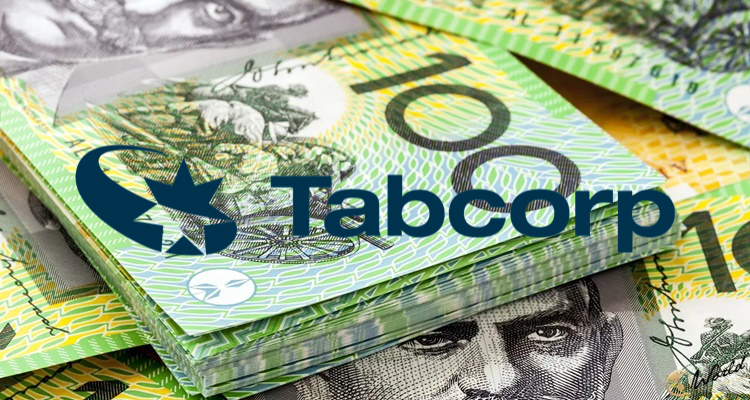Tabcorp, a flagship Australian gambling company/provider of betting and gaming products and services based in Melbourne, stake rose over 5% on Thursday following a report of net income $66.5 million after tax, surpassing consensus forecasts and rising share of total income for FY23 from 33.6% to 34.6%. Speaking on the matter, the company said: “We are turning around a long-term slide in market share and has killed a culture of rewarding under-performance, but we can’t provide detailed earnings guidance while we wait on the outcome of the Victorian wagering licence process.”
Retail sales as the main source of growth:
The growth was caused by a strong increase in retail sales, which was additionally caused by the reopening of shops that were shut down at the same time in 2022. As for the market share of digital income, it dropped from 24.9% to 24.5%, but the company anticipates that it will reach 30% by 2025. On a related note, Adam Rytenskild, chief executive of Tabcorp, commented: “A major brand refresh and ad campaign, and strong products would help boost digital revenue share, as he repeatedly slammed competitors for throwing money at the wall to change metrics.” Mr Rytenskild added: “There’s been a big question mark on this company of what would happen post COVID, would we be able to bounce back. What we’ve seen is with pubs coming back, with cash coming back into market combined with digital for Tabcorp … we have bounced back. We’re well-disciplined. We’re not just throwing money going after turnover share just to prop up our metrics. We were focused on profit as well.”
Entain and Sportsbet primary rivals of TABCORP:
Tabcorp’s main rivals are the big global sportsbooks, Entain and Sportsbet, as clients have increasingly moved away from betting in-person placed wagers online. That, mixed with a softer state of affairs brought on by a frail economy, led to income and earnings from wagering services and media to drop during the second half of 2023.
But, statury income rose by 2.6% to $2.4 billion and earnings prior to “interest, tax, depreciation and amortization climbed 88 per cent to $407.4 million in the first full financial year since Tabcorp demerged from its Lotteries and Keno business.” In addition, this is the best result for the company since corporate bookies “entered” the market. In this regard, Mr Rytenskild said: “The main cause of the fall in the second half was a dramatic increase in marketing spend from Tabcorp’s biggest rival, Sportsbet. Digital was softer, but if you add in retail … we are OK.” However, he did not offer a “cost breakdown” of the big brand campaign introduced this week, but dismissed suggestions that the optics were poor (the firm has been laud in its support of the “proposed gambling advertising ban.”) Commenting on this, he said: “We’ve been mindful about how we go about it. We’ve avoided periods where it’s more likely families will be watching free-to-air television. It’s a brand campaign – we’re not pushing offers and things down people’s throats.”
Different opinions on the results:
Commenting on the company’s profit and recent growth, Taylor Collison gaming analyst Andrew Orbach, commented: “The result was tidy and had delivered on most claims, but I’m worried about the wagering giant’s ability to grow its digital market share to 30 per cent within two years.” On that note, Rytenskild also commented: “I‘m confident I could meet market share targets, pointing to the Victorian betting license process – which is expected to conclude in October – and changes to consumption tax in Victoria and Queensland as factors that could assist.” Additionally, Orbach wrote: “Unfortunately, the one deliverable we’d love to see executed on to gain confidence in our thesis (i.e. growing digital [non-gaming revenue] market share) hasn’t occurred. We look for Victorian licence outcome to improve margins and news from NSW industry review to act as catalyst for re-rate. Feels like somewhat of a race against time for these to be delivered as underlying business continues its historic trends.”
There was also Ord Minnett who said in a note: “The result came in better than expected. However, 4Q23 sport yields relative to competitors negatively impacted the company’s sport and total digital revenue market share.”
The company is on a path of hard work and growth and is better than ever:
When the tax is settled, net profit was $66.5 million as already mentioned above, affected by a $49 million non-cash impairment connected to the gaming services operation. In addition, Rytenskild told that “his cost-cutting program, known as “Genesis”, had delivered a 1 per cent decrease in operating expenditure for the year.”
However, speaking to investors, he said: “The days of old Tabcorp where defensive behavior and underperformance were rewarded are now gone. We’ve had 10 updates to our app in nine months – in old Tabcorp that would have taken over two-and-a-half years.” But he did not offer any additional earnings advice, but averted his attention to speculated costs in the upcoming FY24 , pending news on whether the company will be able to keep its Victorian betting license. Moreover, he concluded that the softer market is in question as mentioned above and dismissed a possible “government-led advertising ban” as something dangerous.
Two key events happened at the same time:
This growth came at the same time as the firm’s 3rd crucial executive, CFO Daniel Renshaw, revealed he would be leaving in 12 months for private reasons. Although his departure has nothing to do with a wider retooling of operations, Rytenskild said “there were some job losses over the past year as a result of his change in strategy.” He added: “It’s not just about cutting costs or cutting jobs. We did reshape our workforce a couple of times in the last 12 months and there was some … reduction in job numbers.” Also, the firm will pay a “fully franked final dividend of 1¢ per share.”
